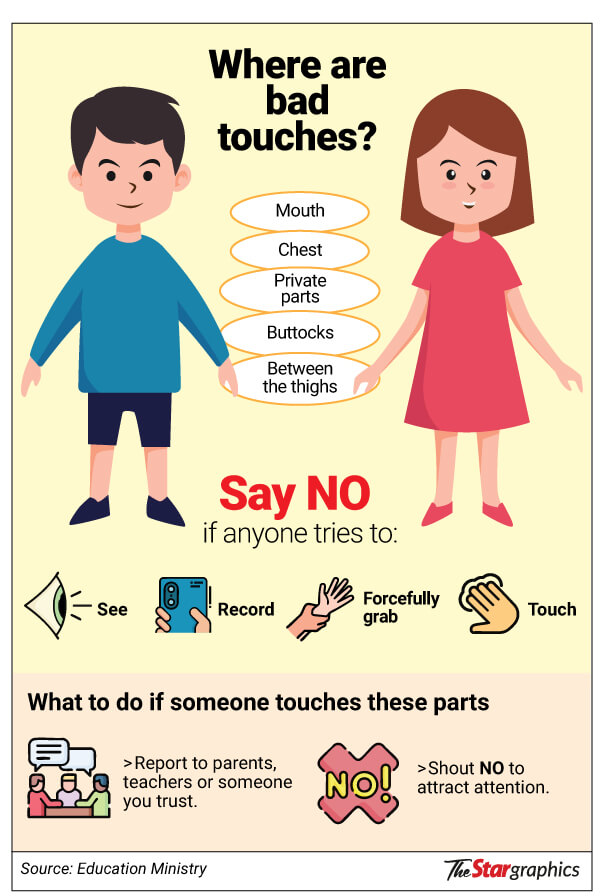
PETALING JAYA: With children as young as eight being sexually groomed and other related issues, a Parliamentary Special Select Committee (PSSC) has called for the Reproductive and Social Health Education (PEERS) scope to be expanded.
The PSSC on Women, Children and Community Development said the revised syllabus should include lessons on the “good touch” and “bad touch,” paedophilia, body shaming and sexually transmitted diseases (STDs), among others.
Pupils should be taught about the good touch and bad touch when it involves family members and those they know, as well as how to deal with such situations when they arise, it said.
“The paedophilia issue requires a more comprehensive approach in education and societal awareness,” the PSSC said in a report on the PEERS syllabus in primary and secondary schools tabled in the Dewan Rakyat recently.
“This includes introducing education focused on protecting children from sexual exploitation, empowering parents and teachers with the knowledge to identify early signs of paedophilia, and ensuring children know their physical and emotional limits.
“The issue of mocking and body shaming must be given attention to, emphasising the importance of appreciating one’s natural body and features. This will increase awareness and shape students’ self confidence.
“Education on infectious diseases such as STDs should be strengthened by improving community awareness, especially among teenagers.
“This must cover information on the cause, mode of transmission, symptoms, long-term effects and precautionary measures such as safe sex and the need for early treatment.”
The committee said the Education Ministry must also include topics on children’s rights and laws including punishments for sexual crimes, especially when it involves cases of mutual attraction among minors.
The ministry should also review topics on reproductive health to make it age-appropriate and focus on the teacher’s expertise.
The committee recommended that male and female students be separated during PEERS lessons so that they feel comfortable enough to ask questions.
The PSSC had run through the PEERS syllabus for both primary and secondary schools before making the suggestions.
Ministry officials had also attended meetings with the PSSC.
According to meeting transcripts, committee members had differing views on terms used for sexual education.
Committee member Dr Halimah Ali (PN-Kapar) proposed that only “grooming” should be used instead of “sexual grooming”.
“The words ‘sex’, ‘sexual’, ‘sexuality’ or other related terms can be a trigger. I am concerned that we may normalise this among younger people.
“If they are in official or legal documents, it is okay, but when it comes to younger age groups, these can be triggers,” she added.
PSSC chairman Yeo Bee Yin (PH-Puchong) said children may be exposed to it through other avenues, even if the word “sexual” was omitted.
“It is better if it is exposed in the proper context,” she said.
Syerleena Abdul Rashid (PH-Bukit Bendera) argued that removing “sexual” from “sexual grooming” would leave it hanging.
“We cannot take away the severity of sexual grooming, especially for children. We should focus on how gross those acts are,” she said.
Datuk Mumtaz Md Nawi (PN-Tumpat) proposed that a more “friendly” word be used instead.
“We can find different terms within the Malay language itself,” she said.
Human Rights Commission of Malaysia (Suhakam) children’s commissioner Dr Farah Nini Dusuki, who is the committee’s fixed representative, asked if the word ‘pengantunan’ (grooming) was too complex for children to understand.
“Sometimes, we may think it is appropriate but for the children, it may not reach their level of understanding,” she said.
Education Ministry Curriculum Development Division director Nooraini Kamaruddin said it was not compulsory for teachers to use the word “sexual” during PEERS sessions.
“We don’t have to teach the word per se. We leave it to our trained teachers to relate it for pupils to understand,” she said.
Source Link: The Star
